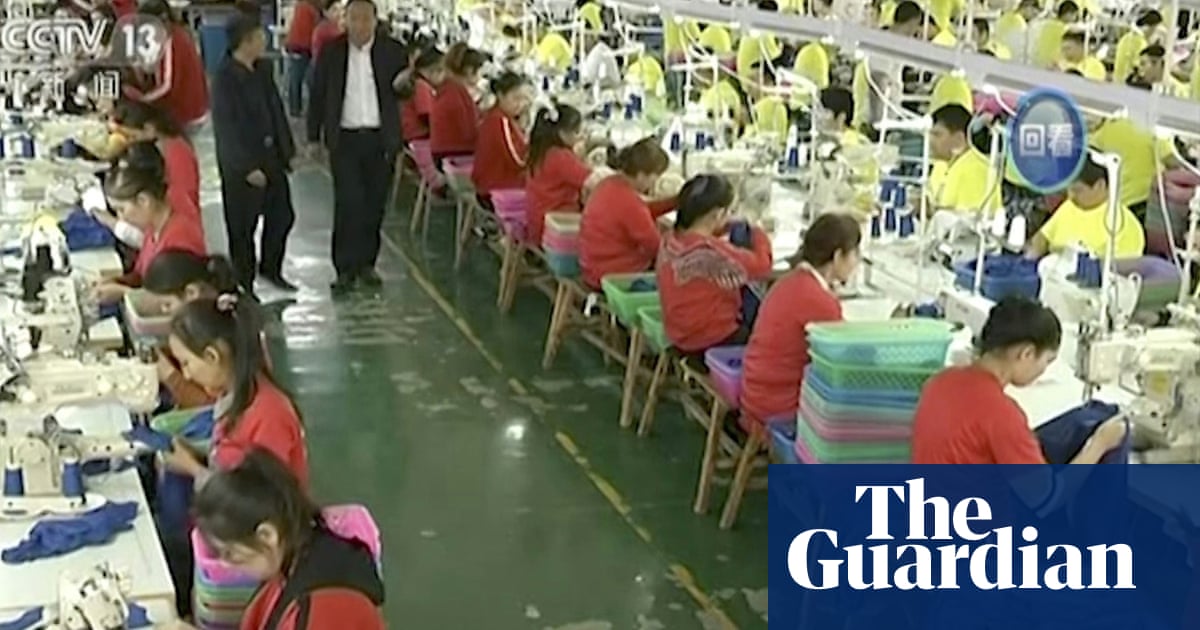
The Morrison government faces growing pressure to tighten Australia’s customs laws after the Senate passed a bill to ban anyone from importing products made using forced labour.
On Monday the Senate passed a bill proposed by the independent senator, Rex Patrick, but for the measure to come into effect it would also have to clear the government-controlled lower house.
The Coalition did not support passage of the legislation through the Senate, even though at least one Liberal senator said it was “a bill worthy of consideration and support in principle”.
Patrick said the passage of the bill was “an important step forward in the international efforts to combat modern slavery”. He said the onus was now on the Coalition government to allow the bill to clear the House of Representatives.
“We can’t have the government dodge the issue by saying that they are conducting another review,” Patrick said. “Action is required within the life of this Parliament, indeed within this calendar year.”
The bill would amend the Customs Act to prohibit the importation into Australia of goods produced or manufactured, in whole or in part, through the use of forced labour.
There is no specific reference to China, despite concerns about human rights abuses in Xinjiang being the initial trigger for the proposal – and something that was mentioned repeatedly in Monday’s Senate debate.
The Liberal senator Eric Abetz told the Senate the Chinese Communist party was a “brutal dictatorship” and he backed Patrick’s bill in principle.
But Abetz called for more detailed scrutiny of the proposal, saying it could be difficult for the government and small business to fully understand the supply chain from where a product is originally sourced.
“If this bill were to go to a vote my heart would say ‘yes’ but my head would be saying ‘not yet’,” Abetz said.
Labor and the Greens were among the supporters of the bill. “Slavery is not a thing of the past,” the Greens senator Janet Rice said.
Earlier, Guardian Australia reported the bill was poised to pass the Senate.
Patrick initially proposed to ban imports of goods made in Xinjiang region due to concerns about the forced labour of Uyghur Muslims – but he changed course after a bipartisan committee said it would be better to amend the law without specifying a particular geographic region.
Ahead of the Senate vote, the Australian Council of Trade Unions joined with several groups to urge senators to support the bill.
The president of the ACTU, Michele O’Neil, said there was “no possible defence for standing in the way of this bill”.
O’Neil, who previously told Guardian Australia it “should appall all Australians that there is no ban on the importation of goods produced by forced labour”, said the bill was a matter of upholding basic human rights.
Carolyn Kitto, from the anti-slavery coalition Be Slavery Free, said Australia was once regarded as a leader in addressing modern slavery – with the introduction of supply chain reporting requirements – but “now we are lagging”.
Freya Dinshaw, a senior lawyer at the Human Rights Law Centre, added that no business should profit from slavery.
“Most Australians would be horrified to know there is nothing in place to stop goods made with forced labour in places like Xinjiang ending up on Australian shelves,” Dinshaw said.
“We want to see a robust imports regime introduced that places the onus back onto importers to show their goods are slavery-free.”
The government has been facing growing pressure – including from its own MPs – to join international efforts to curb forced labour practices, a move that looms as another potential flashpoint in the tense relationship with Beijing.
China denies all allegations of forced labour in Xinjiang or of human rights abuses against Uyghur Muslims and other minorities, but the US and several western parliaments have labelled the Chinese government’s actions in the region as “genocide”.
A prominent Uyghur leader based in Australia on Monday called on senators to “take meaningful action against slavery”.
“The industrial scale at which Uyghurs are being held in internment and labour camps means immediate action on this issue is needed,” said Ramila Chanisheff, the president of the Australian Uyghur Tangritagh Women’s Association.
Patrick’s bill uses an existing definition of forced labour. It includes when someone is not free to cease providing labour or services “because of the use of coercion, threat or deception”. It also includes if a person is not free to leave the place or area where the victim provides the labour or services.
Kylie Porter, the executive director of Global Compact Network Australia, said many businesses were taking action on modern slavery.
“However, we recognise that the passing of this bill may come as a significant challenge for some businesses due to the complexity of supply chains and limited visibility beyond the first tier of suppliers,” Porter said.
She said the government would need to put in place practical measures “to enable businesses to comply with the ban”.
The Modern Slavery Act that passed the parliament in 2018 is limited in its scope, with only Australia’s biggest companies – those with annual revenue of more than $100m – required to submit annual statements on the steps they are taking to address modern slavery in their supply chains and operations.
The government has not ruled out toughening up the modern slavery laws.








